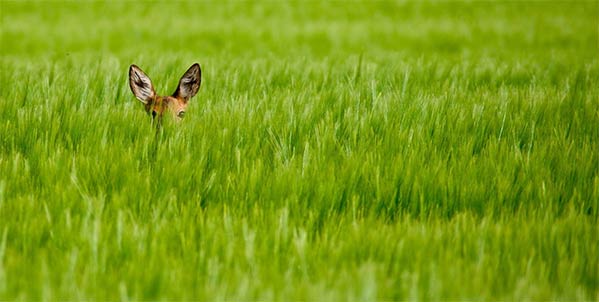We have seen something of the awesome task given to our first Mother and Father – that of extending the temple (sanctuary) of Eden out to encompass the whole of the earth. Now it’s finally time to begin to answer that question – just what did they do wrong? Notice they – not Eve. Our culture has tended to emphasie the sin of Eve, and the stupidity of Adam, but to my mind the text clearly portrays a ‘both / and’ situation. In this post I want to look at a couple of common ideas about what was done wrong, and kick them out into the long grass.
Let’s begin with in from Genesis 3:1

1 Now the serpent was more crafty than any other beast of the field that the Lord God had made. He said to the woman, “Did God actually say, ‘You shall not eat of any tree in the garden’?” 2 And the woman said to the serpent, “We may eat of the fruit of the trees in the garden, 3 but God said, ‘You shall not eat of the fruit of the tree that is in the midst of the garden, neither shall you touch it, lest you die.’”
4 But the serpent said to the woman, “You will not surely die. 5 For God knows that when you eat of it your eyes will be opened, and you will be like God, knowing good and evil.” 6 So when the woman saw that the tree was good for food, and that it was a delight to the eyes, and that the tree was to be desired to make one wise, she took of its fruit and ate, and she also gave some to her husband who was with her, and he ate
Where Adam and Eve Seeking Divinity?
The serpent says to Eve that she (and Adam) will have their eyes opened and they will become like God. The suggestion is made that Eve was tempted to rise above her station and that eating the fruit would somehow imbue them with divinity. I have heard this said many, many times. But it is the clear teaching of the mythos of Genesis, psalms and various prophetic books that Adam and Eve already possessed this divinity. If this is troubling to you, as it was to me when I first heard it, consider the relationship an acorn has to a tree. Clearly an Acorn is not an Oak Tree. They share the same DNA yet, for the purposes of this analogy, the tree is the creator of the acorn. They have different properties, yet come from the same source. This post, which is part of a short series, might help too we are not God – but we are divine.
Even if you find that too much to take the text itself clearly states that Eve wasn’t tempted in this manner. In vs 6 where we read what the issue was the desire for divinity is not listed. Related to this quest for divinity motiff is the idea that they had an enlarged sense of their own importance – in other words pride. But how could they be sinning before the fall? All in all it seems clear that the issue is not linked to divinity or status. There is no ‘divine power grab’ going on here. It is also worth noting that most of the human face tends to think too little of itself…
What about the knowledge of good and evil?
The author lists that Eve saw that the fruit was good for ‘making one wise’ in other words to have the knowledge of good and evil. Was it therefore an issue that they were lusting after knowledge?
I like to think that Adam and Eve were created ‘young’ – perhaps not physically, but definitely experientially. [1] As part of their living in the garden, and fulfilling their calling of extending the boundaries of this temple they would naturally be growing in experience and therefore wisdom. Just consider the enormity of the job they were tasked with. Consider the variety of skills they would need and the number of decisions required. They would not know all that was outside of Eden from the start, and all that they would need to do to accomplish their God given mandate. Therefore they were naturally going to grow in the “knowledge of good & evil” as Yahweh taught them and they grew up. So growing in the knowledge of good & evil was a good, and an expected outcome anyway.
In addition, it is clear that Adam and Eve already had partial knowledge of good and evil. After all, they are in an intimate relationship with the ultimate source of moral authority. God says to Adam that if he eats from the tree he will die. It looks as if Adam has clearly told Eve this (unless God did) – either way she understood it too. As they worked on their mandate of subduing and ruling and turning the inhospitable into the divinely inhabited they would need to exercise this moral choice – distinguishing between good and evil (not good).
Lastly, right through scripture seeking after the ‘knowledge of good and evil’ is always seen as a good thing.[2] Solomon asked for it. God encourages the Israelites to choose good over evil. You cannot choose good if you do not have something that is not good to choose it from and know the difference between them. If this knowledge is seen as good throughout the Hebrew bible why would it be bad for Adam and Eve in this situation?
So its not the seeking ‘the knowledge of good and evil’ that is wrong, but rather the method. They were to grow and develop in this knowledge over time, in partnership with Yahweh. The serpent appeared to offer it to them as an immediate download from the cloud.
It is an interesting aside to speculate about what would have happened if the fall had not occurred. As Adam and Eve fulfilled their mandate and grew in knowledge, could there come a point where that the prohibition on the tree was lifted? Perhaps the danger would have passed as they had fully grown into the necessary knowledge of good an evil under Yahweh’s supervision?
In conclusion
Adam and Eve were not tempted by the promise of divinity since they already possessed this. Nor was desiring the knowledge of good and evil the issue. It is salient to remember that the word ‘know’ has different shades. You can know something about, shall we say, quantum mechanics – what you might call ‘head knowledge. But unless you are exceedingly small, it is difficult to directly experience the effects of QM. So, there is also ‘experiential’ knowledge. I might know all about the sitting in the sun and how it would feel. But I don’t truly know it unless I go outside on a sunny day with a good theological book and a long, cool drink. Prior to the fall it seems that Adam and Eve had both types of knowledge of good, but of evil only head knowledge. The serpent promised them the knowledge of good and evil – and the new thing they ended up with seems to have been the experiential knowledge of evil. Talk about a twist. The father of lies perhaps?
But we still haven’t really covered what they did wrong… that’s the plan for the next post – ‘The Fall – Towards what it was‘.
References
- C. S. Lewis talks at length about this in his fiction book ‘Voyage to Venus’ in which the Venusian Eve undergoes a similar temptation to the earthly one.
- References abound. For starters Deut 1:39, Deut 30:15, 1 Kings 3:9, 2 Sam 14:17.



